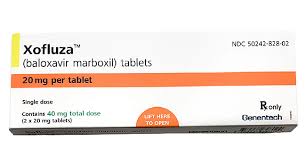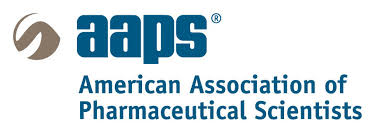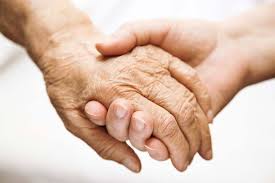|
The recipient of a doctor of pharmacy from Long Island University, Babak Bamdad is the director of pharmacy at Lincoln Hospital. Based in Great Neck, New York, Babak Bamdad is a member of the American Association of Pharmaceutical Scientists (AAPS).
AAPS regularly organizes workshops for pharmaceutical scientists to promote learning among members. From May 6 to 7, AAPS will host a workshop at the Hyatt Regency Boston Harbor to connect predictive modelers. Organized with the goal of increasing predictive modeling’s collective impact on pharmaceutical science, the workshop will bring together modelers from various pharma disciplines to advance education and collaboration for the benefit of all. At the workshop, pharmaceutical scientists from the academic, industry, and regulatory fields will discuss the commonalities and differences of their modeling philosophies and practices. They will also share the tools and techniques underlying current modeling practices across disciplines and discover emerging technologies inspiring the future of predictive modeling. The scientists will also agree on predictive modeling best practices, establish approaches for communicating modeling results to decision makers, and identify opportunities for collaboration and efficiency gains. Attendees will receive session slides after the event.
0 Comments
 Babak Bamdad guides the Lincoln Hospital Pharmacy Department in New York as director and chief, and supervises all aspects of department operation. Active with the American Association of Pharmaceutical Scientists, Babak Bamdad has an extensive knowledge of new drugs on the market. While Tamiflu has long been the most prevalent drug for annual flu shots, a new drug, Xofluza, was recently introduced. Both are marketed by Genentech and priced at around $150 wholesale, with Tamiflu also available in a generic version that costs about $50. The first new flu drug to receive FDA approval in 20 years, Xofluza acts as an antiviral and usually works to reduce flu symptoms within a day. Common side effects include nausea, diarrhea, and headaches, with some pediatric patients also experiencing irritability and, in rare cases, seizures. The latter effects have caused some physicians to shy away from prescribing Xofluza to children, though the symptoms disappear once the medication is stopped. Although Xofluza is described as safe, there is some concern in the medical community that it could lead to the formation of an adaptive superbug. Babak Bamdad, chief and director of Lincoln Hospital's pharmacy department, regularly donates to local homeless shelters. Some of Babak Bamdad's preferred donations are “care” packages, which include mittens, socks, and T-shirts.
Homeless shelters thrive on donations from generous citizens, but not all donations carry the same value. Some items are in higher demand and more effectively help shelters care for their residents. Clothing items always help, and none are more important than socks and shoes. Warm clothing, such as sweaters and coats, help keep shelter residents safe in the winter. Shoes and socks, however, end up threadbare and damp at any time of year, thanks to the long distances walked by many without homes. Shoes and socks in both children's and adults' sizes help shelters keep residents properly clothed. Sleeping bags can also help a homeless shelter function more effectively. These can make interior sleeping rooms more comfortable as well as allow the shelter to provide at least some warmth for those it cannot house. In some circumstances, giving a sleeping bag to a shelter can mean the difference between life and death.  Dr. Babak Bamdad joined Lincoln Hospital in New York City in 2010, and continues to manage activities as chief and director of the pharmacy department. Beyond his work at the hospital, Dr. Babak Bamdad engages with professional organizations, such as the American Association of Pharmaceutical Scientists and the Association of Clinical Research in the Pharmaceutical Industry. The American Association of Pharmaceutical Scientists' (AAPS) annual meeting, AAPS PharmSci 360, provides five comprehensive educational tracks addressing all aspects of the pharmaceutical sciences. These tracks are further divided into chemical and biomolecule specialties, making for ten total tracks. The Dynamic Solution Center floor has been broken down into sections mirroring these tracks, thereby allowing professionals to easily navigate through hundreds of exhibitors offering dozens of learning opportunities. Educational materials are further streamlined into thousands of scientific posters set up throughout the area, each promoting the most progressive industry research techniques and news. The vast educational offerings at AAPS PharmSci 360 are complemented by extensive networking opportunities and career development support for managers and administrators. To learn more about the 2019 AAPS PharmSci 360, please visit www.apps.org.  Babak Bamdad, chief and director of the pharmacy department at New York's Lincoln Hospital, provides extensive community service in his spare time. Babak Bamdad often donates art supplies to homeless shelters that accept children, providing young people with chances to engage their creativity. Children benefit from being able to participate in the arts, whether written, visual, performing, or musical. Children who engage in art develop greater creativity, gaining a sense of how to connect unrelated ideas and create new, innovative lines of thinking. As they use their senses, their synapses fire and new neural connections are made. For young children, art also can help with physical development. Holding a pen, mixing colors, squeezing paint out of a tube, and similar activities are appropriate challenges for their level of physical development. Unlike other physical tasks, the child often will want to do them and improve their motor skills. Emotionally, art helps children process feelings. Children often have difficulty expressing themselves or how they feel about the world around them in words. Art can help by providing a safe outlet for those feelings. As the director and chief of Lincoln Hospital’s Pharmacy Department, Dr. Babak Bamdad oversees all of the hospital’s pharmacy operations. Committed to giving back to his community, Babak Bamdad, PharmD, often makes care packages, complete with T-shirts, mittens, and socks, for kids at a homeless shelter.
Since people who are homeless often walk several miles daily for food and shelter, the lack of socks can significantly impact their overall foot health. Each foot contains about 125,000 sweat glands on the bottom. This means that feet can produce a lot of moisture during the day. When this moisture isn’t properly wicked away, it softens the skin, thus making it more prone to blisters. Blisters make it extremely painful to walk and can essentially bar people without a home from getting the food and shelter they need. Over time, blisters can lead to more serious issues, such as trench foot. When this condition takes hold, the outer layer of the skin of the foot absorbs water and swells. This leads to blisters and, if left untreated, infection and tissue death. Common during WWI, it has largely been eliminated in developing countries, with the exception of the homeless population. Blisters aren’t the only foot issue facing people without a home, either. In areas that get snow, it takes only about 30 minutes to incur frostbite. This time is reduced to five to 10 minutes at temperatures of -15 degrees Fahrenheit or lower. These issues are easily avoidable as long as people have warm, well-fitting socks.  A resident of Greatneck, New York, Babak Bamdad is the chief director of the pharmacy department at Lincoln Hospital. The holder of a doctor of pharmacy, Babak Bamdad is a member of the American Association of Pharmaceutical Scientists (AAPS). AAPS is dedicated to advancing pharmaceutical sciences, careers, and community. It draws its primary membership from pharmaceutics, biopharmaceutics, and pharmacy. AAPS offers members opportunities to expand their professional knowledge through the AAPS education program. The AAPS education program offers professional education both online and offline through e-courses, workshops, and live events. The e-courses, facilitated by industry leaders with a goal to provide practical scientific perspectives, cover topics such as biotherapeutic development, pharmacotherapy, and drug pre-formulation. AAPS members get a discount on these courses. Offline, AAPS education hosts regular workshops where members can interact with fellow pharmaceutical scientists and tackle topics such as dermatological drugs and immune-oncology modeling. The organization has many workshops scheduled for the remainder of the year that cover industry issues. The chief and director of the pharmacy department at Lincoln Hospital in New York, Babak Bamdad supervises, hires, and trains personnel. In addition to this, Babak Bamdad handles daily practices at the pharmacy, including establishing standards of quality and promoting efficient operations.
Below are three ways to improve efficiency at pharmacies: 1. Streamline movement: Although it may seem pointless, it’s important that pharmacy leaders look at how many steps their pharmacists and technicians take to do their work. Ideally, every tool and resource personnel needs to complete daily tasks must be kept close and on hand. Reducing the number of steps personnel must take streamlines movement and makes them more efficient. 2. Introduce automation: Automated systems are capable of boosting pharmacy efficiency while also improving patient safety. By introducing these systems, pharmacy leaders reduce how much time is spent managing out-of-stock medication and makes refilling scripts easier. 3. Assign tasks: Most of the time, pharmacy personnel juggle multiple tasks throughout their day, such as answering phones and labeling prescriptions. Instead, designate each task to specific workers. For example, having staff members who are only responsible for answering phones keeps other personnel free for filling prescriptions fast.  Babak Bamdad is a respected presence in the New York community who leads the pharmacy department at Lincoln Hospital as director and chief. Supervising operations, Babak Bamdad strives to maintain high levels of department efficiency while complying with federal regulatory mandates. Active with professional organizations, he maintains a strong interest in developments in the pharmaceutical industry. A recent Business Insider article discussed what is described as the first positive Alzheimer's trial in several years. As presented at the Alzheimer's Association International Conference, Biogen and Eisai completed a phase 2 study for the drug BAN2401 encompassing 800 early Alzheimer's disease patients. The approach involves targeting the beta amyloid proteins that accumulate in brains of those with Alzheimer's disease. The trial results were a 30 percent reduction of beta amyloid proteins among patients who took the highest dose of BAN2401, as opposed to those receiving placebos. With PET imaging employed in identifying amyloid plaques within the brain, 81 percent of patients taking high doses of BAN2401 improved from amyloid positive to amyloid negative over an 18 month period. With a major clinical milestone achieved, further trials of this novel therapeutic approach are expected to continue. Babak Bamdad, the director and chief of Lincoln Hospital’s pharmacy department, is responsible, among other things, for supervising personnel and evaluating performance. An active philanthropist, Babak Bamdad regularly donates art supplies to kids in homeless shelters.
Many people overlook the importance of art programs for kids who are homeless, bur these programs are hugely beneficial. Following are just a few of the benefits that art offers for children: *Correlates with positive academic outcomes: Kids who participate in an arts program usually have better grades than their peers, along with higher attendance rates, a better chance of graduating from college, and increased literacy. This connection is even stronger among children with lower socioeconomic status. *Builds fine-motor skills: Creating art requires that young children learn to hold a paintbrush, drawing lines or dots, cut paper, and squeeze glue bottles. All this activity helps kids develop their fine-motor skills, increasing both coordination and dexterity. *Improves problem-solving abilities: Open-ended art grants children plenty of opportunity to make choices and evaluate the results of their decisions. In doing so, kids become more comfortable with uncertainty and develop their confidence and creativity. *Boosts understanding: As children grow, they absorb information about themselves and the world around them. However, they must process this information in a reflective way. Art gives them this ability and lets them express themselves and their daily experiences without words. |
AuthorAt Lincoln Medical and Mental Health Center, Babak Bamdad’s primary duties involve establishing and maintaining quality, performance, and productivity standards in accordance with those set by Presentation Medical Center. ArchivesCategories |
 RSS Feed
RSS Feed
